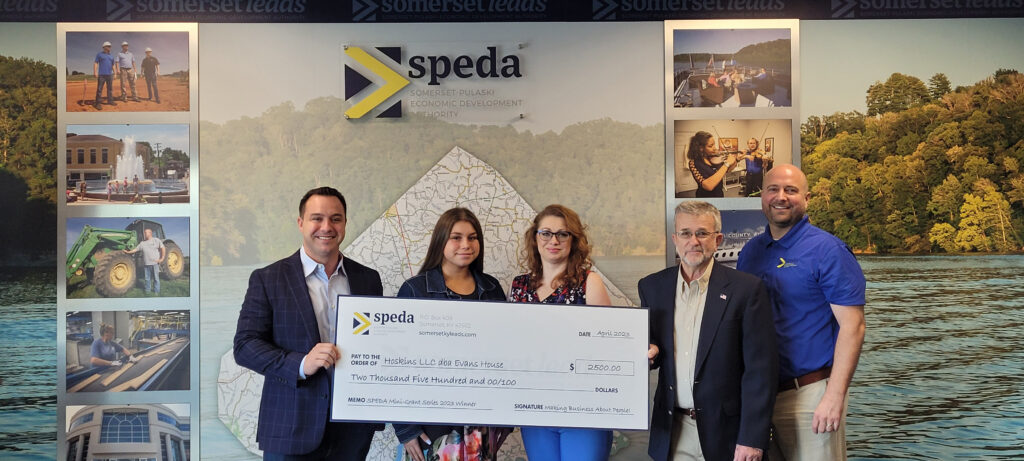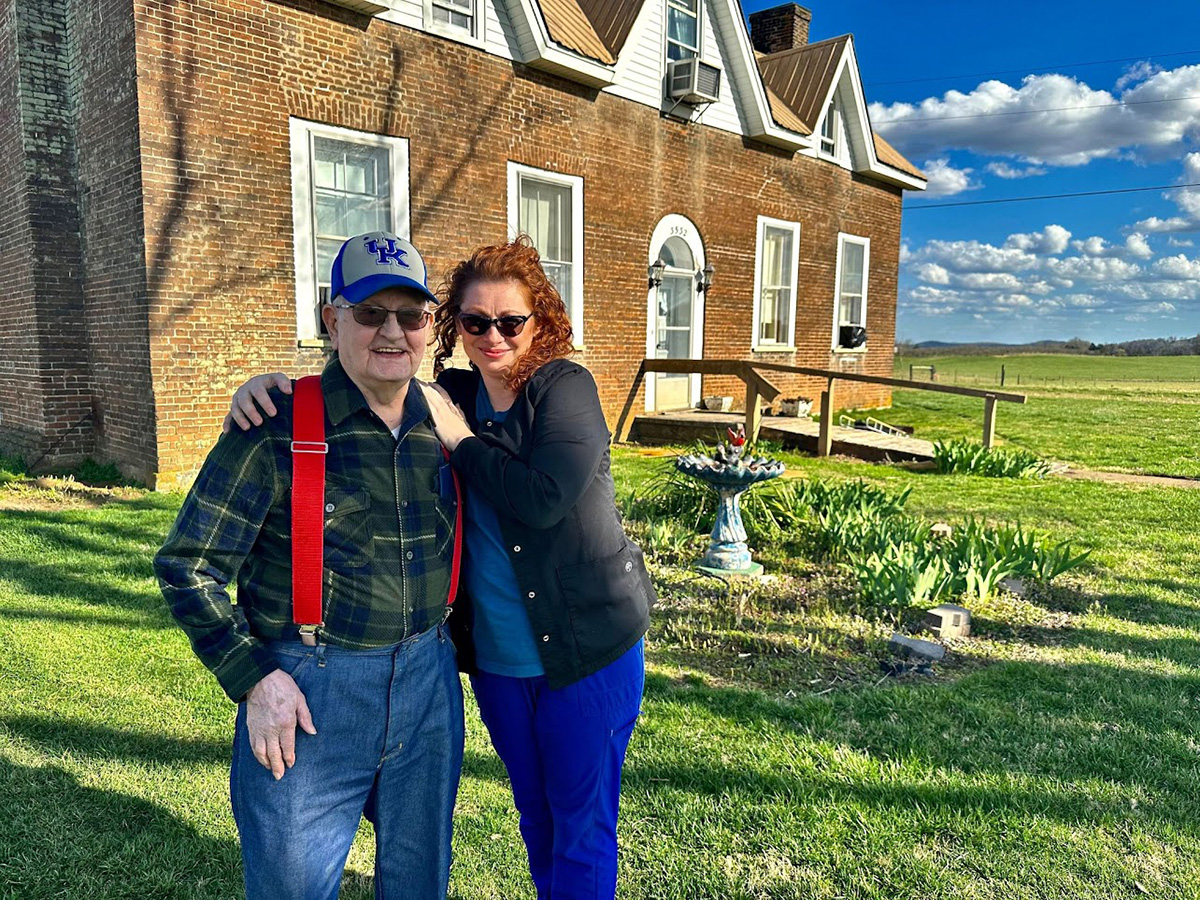Local woman uses SPEDA mini-grant to purchase historic marker for future bed and breakfast
Editor’s note: This is the third of four profile pieces highlighting the 2023 winners of SPEDA’s mini-grant program. SPEDA’s mini-grant program awards $2,500 to four local businesses with plans to innovate and expand their operations. The mini-grant program is an annual initiative made possible through good management and proper financial oversight at SPEDA that has helped the organization save thousands annually.
Krissie Reffner’s aspirations for a bed and breakfast have roots that stretch back to the Revolutionary War.
Located on Ky. 461 in Shopville, Reffner’s future B&B — known as the Evans House — cuts a magnificent image, the reds of its handmade brick contrasting with the blue sky on a clear day. Though it boasts a bold appearance on the outside, however, the history of this house lies quietly deep within, offering a glimpse into the origins of Pulaski County and the life of a man named Sergeant John Henry Evans, a soldier of the Revolution and lord of the house bearing his name.
Those stories are what drew Reffner to the Evans House. Married with her dream of starting a bed and breakfast, it seemed to be the perfect way for Reffner to realize her dream of starting a business and making a contribution to her community. This clarity of vision made her project a natural choice to receive a mini-grant from the Somerset-Pulaski Development Authority (SPEDA), which helps small and start-up businesses innovate and grow.
“When I saw [the Evans House] on the market,” Reffner said, “I thought ‘this is it.’ With its history and its beauty, I knew this would be the perfect place for my dream.”
The house echoes with Pulaski’s past. While acquiring the Evans House, which is registered with the National Register of Historic Places, Reffner did her due diligence, spending several hours at the library to deep-dive into the mansion’s lore and history.
“That’s when I discovered it belonged to [John Henry Evans], who acquired the land when he left the service,” Reffner said. “He did this through the Virginia Land Grant and had the largest amount of land for anyone to own in the Shopville settlement.”
Reffner was later aided by a local lawyer when she wanted to expand her investigation into the Evans House’s history, learning about the home’s ownership and the sergeant’s story.
“In addition to his service in the Revolution,” Reffner said, “he was a sergeant major in the War of 1812, bringing boys from the area and McCreary County to serve.”
She also learned that there is a possibility that she is related to some of those soldiers, making the acquisition of the Evans House all the more special and personal.
Reffner has a deep desire to share what she knows about the house’s history with the public, and the SPEDA mini-grant program has been invaluable to that end. With her $2,500 award, Reffner has acquired a bronze-cast historical marker to place at the entrance of the house.
“People pull up here every week asking about the house and wanting to see the graves onsite,” Reffner said. “The marker will act as something to give a little background. It’s important to show that history.”
Knowing the history behind the Evans House will help enrich the experience of visitors to the location when it eventually opens as a tavern and inn, providing patrons with a history lesson and a relaxing stay.
Part of that multifaceted experience was also shaped by Reffner’s love of the television series The Lost Kitchen, which focuses on a chef educating travelers from across the globe about history and cooking. That appreciation factors into her goals for the Evans House.
“I want to introduce foods of the era to our guests,” Reffner said. “We’re going to have cookbooks from the 1800s and pull recipes from them and tell the history of the food while we serve it.”
Customers will be able to read Evans’s last will and testament, which Reffner plans to enlarge and frame, while they experience that authentic culinary immersion.
Reffner hopes to open the bed and breakfast and tavern in 2024, and she has a multi-year plan for her venture, expanding the menu and continuing to educate her guests about the property’s history.
That spirit of education is what makes Reffner’s such a unique project: she is fulfilling her dreams while giving back to her community.
“I’m so grateful to the SPEDA program to be able to put this together,” Reffner said. “It is so rare to have all the pieces of a historical puzzle. We have the house and the history as a door into the life of the original owner and the time period itself. We have a chance to get a greater understanding of the people who settled Pulaski and who we are.”


